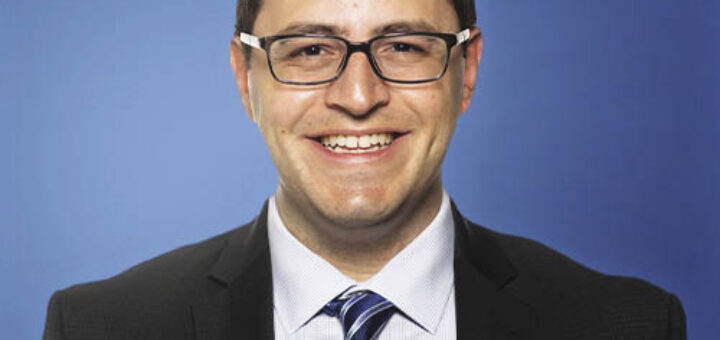Province holds student town hall for Alberta 2030 university revamp

By Noel Harper, News Editor
The Advanced Education Minister of Alberta, Demetrios Nicolaides, is taking his plan to overhaul the province’s post-secondary system on a virtual town hall tour to hear from key stakeholder groups, including university faculty, staff, and students. On Jan. 7, it was the latter’s turn to ask the minister about the review and offer their suggestions.
“Alberta 2030: Building Skills for Jobs” was born out of the MacKinnon Report, a 2019 overview of the province’s finances which was completed to find cost-saving measures. According to Nicolaides, the report found that post-secondary education in Alberta lacked overall direction, and recommended government consultations to help set this direction.
“Indeed, the MacKinnon panel noted … while our post-secondary institutions may collaborate on occasion, they did not feel that that collaboration existed at the highest possible level,” he said during the Alberta 2030 student town hall.
“We have a tremendous opportunity in front of us to ask real fundamental questions about the Alberta post-secondary system, and help it move from good to great,” Nicolaides continued.
Since the initiative was launched in July 2020, more than 125 interviews have been conducted with student leaders, university faculty and other representatives, as well as 25 roundtable discussions, according to Nicolaides.
Students from across Alberta’s post-secondary institutions tuned in to ask Nicolaides questions directly, including from Mount Royal University, the University of Calgary, University of Alberta and others.
One of the first student questions regarded how the initiative will improve supports for sexual violence on campus, referencing the Council of Alberta University Students’ recent paper on the subject.
“It’s been frustrating to see a lack of action publicly from this government in regards to sexual violence and safe and healthy campuses,” the student said.
“Prior to the pandemic, we had a loose idea of the magnitude of the issue when looking at the research from across Canada. But now, with COVID-19, it is my belief we are losing sight of the issue at hand.”
The student referenced the lack of statistics on sexual violence collected by universities, which Nicolaides addressed. “We don’t collect data, even some of that basic recording of data doesn’t exist. I think there’s more that we can do there,” he said.
The topic of international students was a recurring one throughout the town hall. One student was concerned that the growing number of students coming from abroad would leave less options available for locals.
Nicolaides stressed the importance of attracting international students to Canada, and Alberta in particular — which, he said, is behind other provinces on this metric. At the same time, the province must ensure opportunities for students at home by improving the transfer system and introducing innovative methods of delivering post-secondary education.
Another student began by discussing frustrations regarding responsibility for responding to key post-secondary issues, and the seemingly endless loop that emerges.
“When I approach my institution regarding affordability, I am told that it is out of their hands, that the government has cut funding … and that is why tuition is going up. When I ask the government why my tuition is going up, I’m told that the government doesn’t control how an institution spends their money,” the student said.
The student, who is enrolled in an international business program, was concerned that international students are viewed as “cash cows” due to high rates of tuition.
“I’m not a fan of micromanaging. I think we have excellent individuals who lead our institutions and a lot of these decisions are best left to them. But … we do have the ability to set some parameters and guardrails around tuition,” Nicolaides said.
The initial version of Alberta 2030 considers deregulating tuition, allowing institutions to set their own tuition rates.
Spirit River Striped Wolf, president of the Student’s Association of Mount Royal University, tied several of the town hall’s preceding questions together, asking how Alberta 2030 plans to specifically deal with long-standing issues such as mental health, financial stress and safety against domestic and sexual violence.
“There are performance indicators put on [universities], as we’ve talked about tonight, but where are the performance indicators for the government when it comes to the principles I mentioned?” asked Striped Wolf.
Nicolaides ultimately returned the question back to Striped Wolf, delegating to “the student experience” on objectives to be included in the strategy.
The evening’s final question came from an international student from California, studying at the University of Calgary. The student opted to put an answer to one of the questions that Nicolaides had thrown back to the audience.
“I think I speak for a super majority of students … when I say, the answer to whether you should deregulate tuition — or even, I might add, cut more funding for post-secondary education in Alberta — is a resounding no.”
The student went on to ask why the government thought it was appropriate to cut public funding to universities, leading to tuition increases and juxtaposing the difficult financial situations of many students with the tax cuts offered to large corporations.
Nicolaides reiterated Alberta’s financial situation and decreased oil and gas royalty revenues, telling the student, “the fiscal dynamic of the province is in incredibly dire straits. We have to make some difficult decisions in order to help balance the province’s finances.”
A total of six telephone town halls are planned for consultations on Alberta 2030 throughout the month of January.


